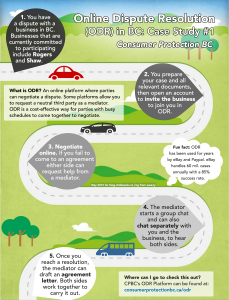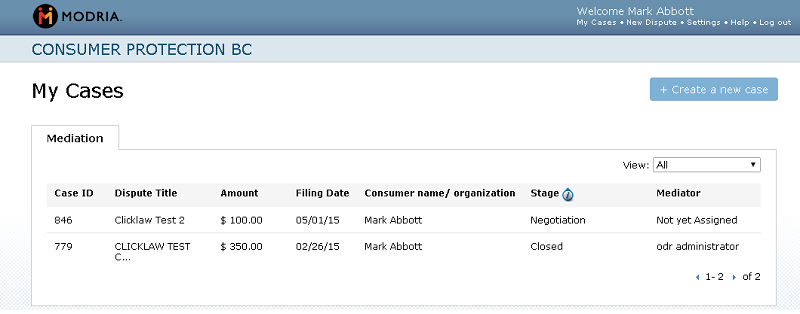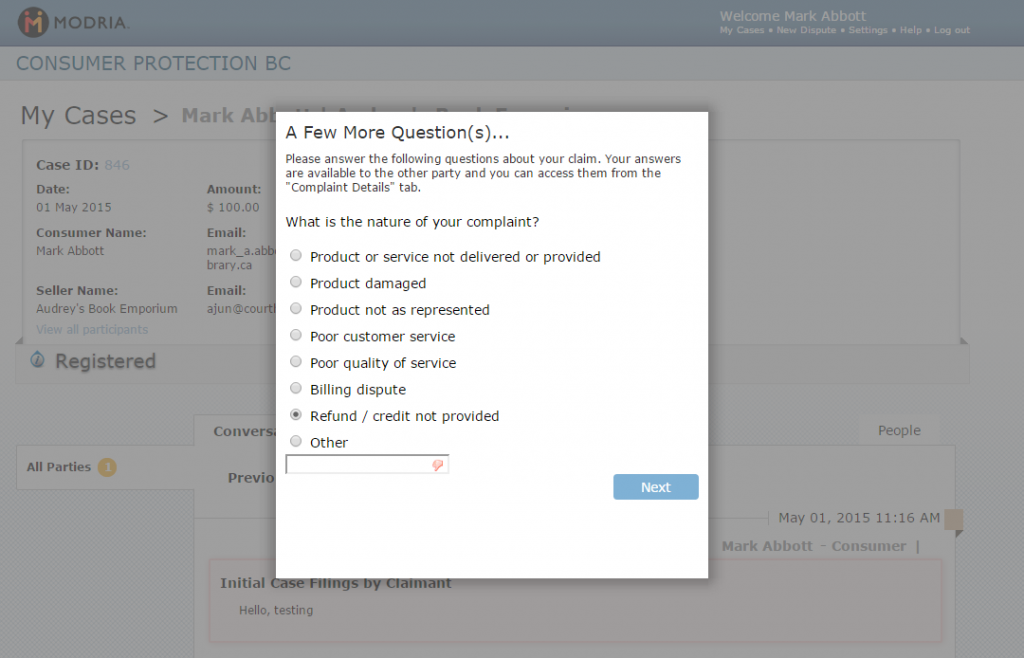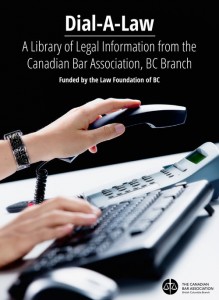Online Dispute Resolution in BC: Case Study #1
Intro | Part 1 | Part 2 | Part 3a | Part 3b
Online Dispute Resolution (ODR) is joining the legal landscape in BC, but many people–even some lawyers–are unfamiliar with its processes. We are covering the emergence and expansion of ODR in BC in a series of blog posts. (See our introduction here.)
In recent ODR-related news, the Civil Resolution Tribunal or “CRT” (which we discussed in our first post) has appointed 18 tribunal members. They will hear strata property and small claims cases, and will be able to make decisions that are binding and enforceable like court orders. You can read the press release from the CRT and BC Ministry of Justice here.
In today’s post we focus on Consumer Protection BC’s ODR platform, a neutral online space where people can settle disputes with businesses, without going to court.

We created an infographic (below, right) which provides a snapshot of the process, from start to finish.
We tested the ODR tool ourselves, giving you an inside peek into the process, with screen captures to provide visual context.
Important note: the steps we took here are not exhaustive of the ways that you can resolve a dispute using ODR.
 Create an account. When you start a new dispute you will be asked questions regarding the nature of your complaint.
Create an account. When you start a new dispute you will be asked questions regarding the nature of your complaint.



 public legal information, including
public legal information, including 
